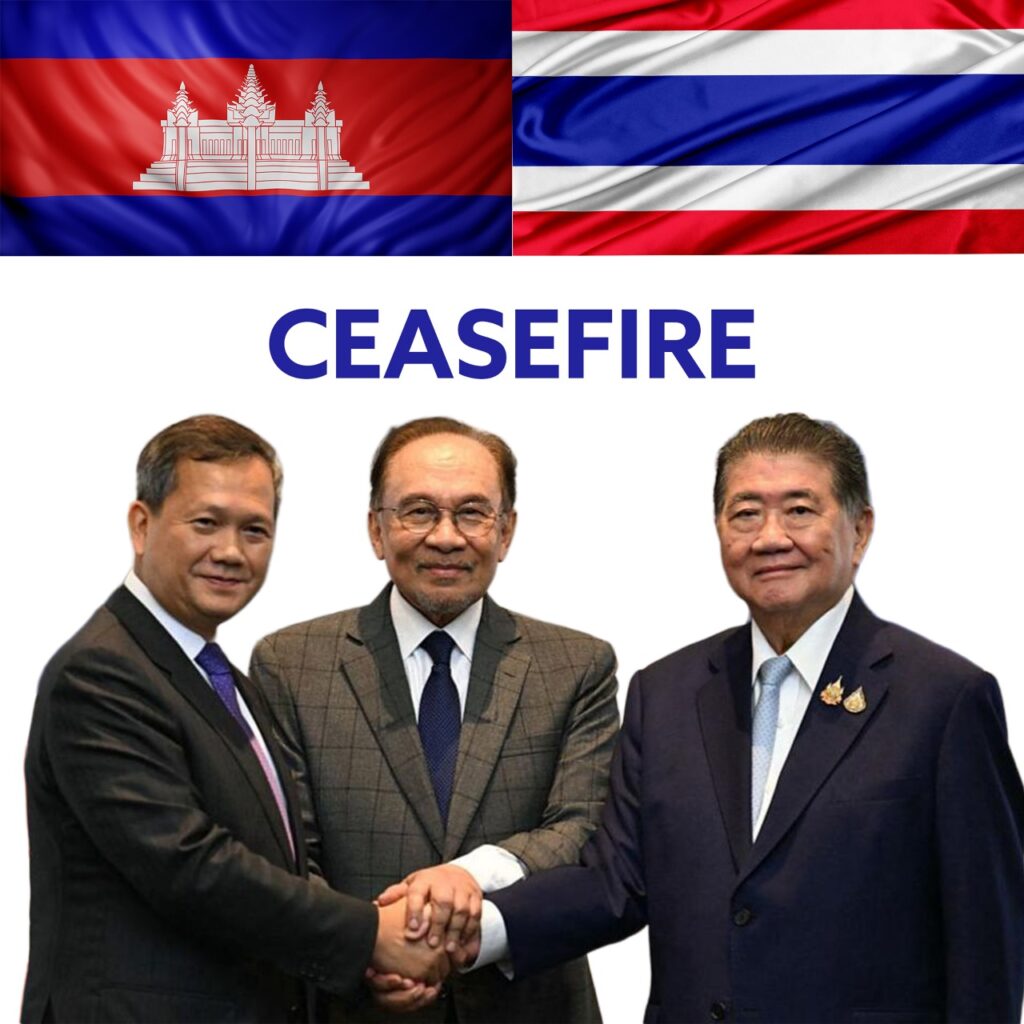In the midst of one of the worst violence outbreaks between Thailand and Cambodia in more than ten years, Malaysian-led diplomatic efforts achieved an immediate and unconditional ceasefire, which was revealed during peace negotiations conducted in Putrajaya, Malaysia, on July 28–29, 2025. The talks organized by Malaysian Prime Minister Anwar Ibrahim, the ASEAN chair, included Cambodian Prime Minister Hun Manet and Thailand’s acting Prime Minister Phumtham Wechayachai, along with representatives from China and the United States, such as U.S. Ambassador Edgard Kagan and Chinese Ambassador Ouyang Yujing. Following hours of intense negotiations, the two parties reached an agreement to cease hostilities at midnight local time on July 29. This marks a significant advancement in putting an end to the intense border conflicts that began on July 24, resulting in the deaths of at least 35–38 individuals, primarily civilians, and displacing approximately 270,000 to 300,000 individuals on both sides.
Despite the formal agreement on the ceasefire, Thailand expressed significant doubt regarding Cambodia’s honesty. Acting Prime Minister Phumtham charged Cambodia with breaching international law and attacking civilians, whereas Cambodia firmly rejected the claims and urged for a denunciation of Thai aggression. Although the ceasefire accord was celebrated as a diplomatic success, analysts pointed out that both parties required time to genuinely withdraw troops from the disputed border. Anwar Ibrahim highlighted the need for patience while forces retreated, and military leaders readied themselves for informal coordination discussions the next morning.
Global influence had a significant impact. Former U.S. President Donald Trump publicly engaged in the mediation process, using trade discussions to exert pressure by proposing tariffs as high as 36–49% on exports from Thailand and Cambodia unless hostilities ended, and he hailed the ceasefire as a triumph for peacekeeping on social media. He also asserted that he had directly communicated with both leaders by phone prior to the discussions. Simultaneously, Chinese representatives took part in the talks hosted by Malaysia, highlighting the extensive global interest in reducing tensions.
The border dispute focused on long-contended regions along the 817 km border, particularly near historic Hindu temples such as Preah Vihear and Ta Moan Thom, whose control has been challenged for decades—even following a 1962 ICJ ruling that supported Cambodia. The situation escalated in May following the death of a Cambodian soldier and was additionally aggravated by a leaked 17-minute phone call between the Thai Prime Minister and former Cambodian leader Hun Sen, igniting political controversy in Bangkok.
Even with the ceasefire in place, analysts warn that enduring peace is still delicate. The area’s entrenched nationalist conflicts, reciprocal suspicion, and outstanding legal issues indicate that upholding the ceasefire, withdrawing troops, and ensuring diplomatic progress will challenge the resilience of this advancement. Observers and humanitarian advocates nonetheless greeted the cessation of violence as an essential prerequisite for rebuilding trust, reestablishing stability, and ultimately reintegrating displaced civilians into their homes in the border areas.

